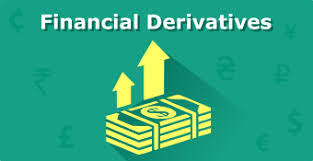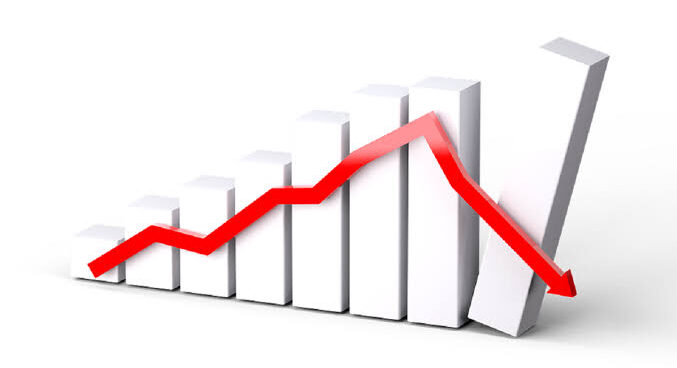
In the ever-evolving world of finance, derivatives have emerged as powerful tools for risk management, speculation, and hedging strategies. These financial instruments derive their value from an underlying asset, such as stocks, bonds, commodities, currencies, or interest rates. Derivatives provide investors and traders with opportunities to manage risk, capitalize on market movements, and create complex investment strategies.
The Definition of Derivatives
A derivative is a financial contract whose value is derived from an underlying asset or group of assets. The underlying assets can include stocks, bonds, commodities, currencies, interest rates, market indexes, or other derivatives.
Types of Derivatives
The derivatives market encompasses a wide range of instruments, each designed to serve specific purposes. Here are some of the most commonly used types of derivatives in finance:
- Futures Contracts:
Futures contracts are agreements to buy or sell an asset at a predetermined price on a specific future date. These contracts are standardized and traded on exchanges. Futures are commonly used for hedging against price fluctuations or speculating on future price movements. - Forward Contracts:
Similar to futures, forward contracts are agreements to buy or sell an asset at a predetermined price on a future date. However, forward contracts are over-the-counter (OTC) instruments and are not standardized, allowing for customization based on the parties’ needs. - Options:
Options give the holder the right, but not the obligation, to buy (call option) or sell (put option) an underlying asset at a predetermined price (strike price) within a specific time frame. Options provide flexibility and are used for hedging, speculation, and generating income through option premiums. - Swaps:
Swaps are agreements between two parties to exchange cash flows or financial instruments based on predetermined rules. Interest rate swaps and currency swaps are common examples, where parties exchange interest payments or convert currencies to manage risk or exploit market opportunities. - Structured Products:
Structured products are complex financial instruments that combine various derivatives and underlying assets to create customized payoff structures. These products are tailored to meet specific risk-return profiles and can include features like capital protection, leverage, or exposure to specific market conditions.
Trading Derivatives:
Spot, Futures, and Beyond
Derivatives can be traded in various markets, each with its own characteristics and trading mechanisms. Here’s an overview of how spot, futures, and other derivatives are traded:
- Spot Market:
The spot market involves the immediate delivery and payment of the underlying asset, such as a stock, commodity, or currency. Spot trading is the physical exchange of the asset for cash at the current market price. - Futures Market:
Futures contracts are traded on organized exchanges, such as the Chicago Mercantile Exchange (CME) or the Intercontinental Exchange (ICE). These exchanges facilitate the buying and selling of standardized futures contracts through an open outcry or electronic trading system. Futures traders speculate on future price movements or use these contracts for hedging purposes. - Options Market:
Options can be traded on exchanges or over-the-counter (OTC) markets. Exchange-traded options, like those on the Chicago Board Options Exchange (CBOE), follow standardized contract specifications. OTC options are customized contracts negotiated between counterparties, offering greater flexibility but also increased counterparty risk. - Swaps and OTC Derivatives:
Swaps and other OTC derivatives are typically traded through interdealer brokers or directly between counterparties, such as banks, hedge funds, or other financial institutions. These trades are conducted privately and are not centralized on an exchange. - Structured Products:
Structured products are often issued and traded by investment banks, brokerage firms, or specialized financial institutions. These products are tailored to meet specific investor needs and can be traded over-the-counter or, in some cases, listed on exchanges.
Derivatives in finance offer a vast array of possibilities for risk management, speculation, and portfolio diversification. Whether it’s hedging against price fluctuations, capitalizing on market movements, or creating customized investment strategies, derivatives play a crucial role in modern financial markets. However, it’s essential to understand the risks associated with these instruments and to engage in responsible trading practices, as derivatives can be complex and carry significant risks if not properly understood and managed.



dwyoz8
mlw1pt
hello there and thank you for your info – I’ve definitely picked up anything new from right here.
I did however expertise some technical points using this website,
since I experienced to reload the site many times previous to I could get it to load properly.
I had been wondering if your hosting is OK? Not that I
am complaining, but slow loading instances times will sometimes affect your placement in google and can damage
your high quality score if ads and marketing with
Adwords. Anyway I’m adding this RSS to my email and could look out for a lot more of your respective intriguing
content. Ensure that you update this again very soon..
Lista escape room
Your point of view caught my eye and was very interesting. Thanks. I have a question for you.
Thank you for another informative web site. The place else may just
I get that type of info written in such a perfect method? I’ve a venture
that I’m simply now running on, and I’ve been on the look out for such info.
I was able to find good info from your articles.
Howdy! I could have sworn I’ve been to this blog before but after going through a few of the articles I realized it’s new to me. Regardless, I’m definitely delighted I stumbled upon it and I’ll be bookmarking it and checking back frequently.
There is certainly a great deal to know about this issue. I like all the points you have made.
Oh my goodness! Awesome article dude! Many thanks, However I am having problems with your RSS. I don’t understand why I can’t subscribe to it. Is there anybody else having the same RSS problems? Anybody who knows the answer can you kindly respond? Thanx.
Great web site you have here.. It’s difficult to find good quality writing like yours these days. I seriously appreciate people like you! Take care!!
I want to to thank you for this very good read!! I definitely loved every little bit of it. I’ve got you bookmarked to check out new stuff you post…
You’ve made some really good points there. I looked on the internet to find out more about the issue and found most people will go along with your views on this web site.
Thank you for your sharing. I am worried that I lack creative ideas. It is your article that makes me full of hope. Thank you. But, I have a question, can you help me?
Having read this I thought it was rather informative. I appreciate you spending some time and energy to put this article together. I once again find myself personally spending a significant amount of time both reading and commenting. But so what, it was still worth it!
This is a very good tip particularly to those new to the blogosphere. Simple but very precise information… Many thanks for sharing this one. A must read post!
An outstanding share! I’ve just forwarded this onto a friend who has been conducting a little research on this. And he actually ordered me lunch due to the fact that I discovered it for him… lol. So allow me to reword this…. Thanks for the meal!! But yeah, thanx for spending time to talk about this matter here on your blog.
I really love your site.. Excellent colors & theme. Did you develop this site yourself? Please reply back as I’m planning to create my own personal blog and would like to learn where you got this from or just what the theme is called. Thank you!
May I simply just say what a relief to find somebody that actually knows what they are discussing online. You definitely know how to bring an issue to light and make it important. A lot more people should read this and understand this side of your story. I was surprised you are not more popular given that you definitely possess the gift.
There is definately a great deal to learn about this topic. I like all of the points you made.
Saved as a favorite, I really like your blog.
Thanks for sharing. I read many of your blog posts, cool, your blog is very good.